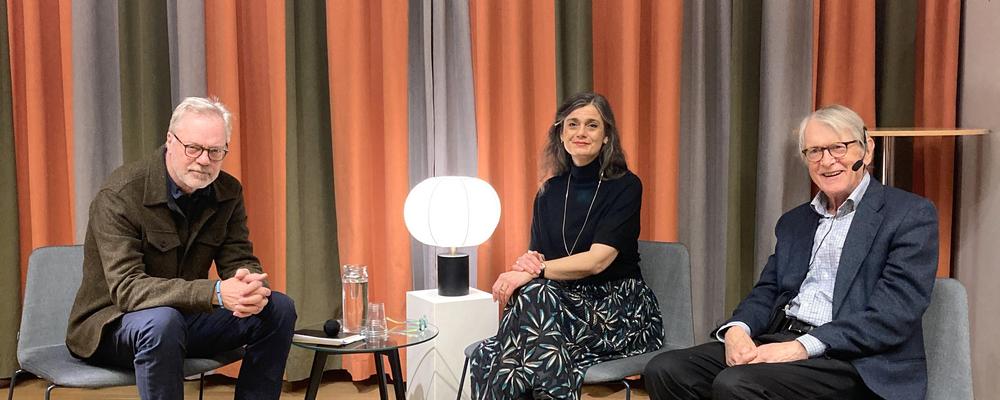Elisabeth Punzi, clinical psychologist and senior lecturer in psychology at the Department of Social Work and Centre for Critical Heritage Studies, University of Gothenburg, was invited to talk about Freud's Jewish identity and the significance of Judaism and Freud's Jewish identity for psychoanalysis and its emergence. Elisabeth spoke with the doctor and psychoanalyst Mikael Sundén and Svante Weyler, writer and journalist and former chairman of the Swedish Committee against Antisemitism.
The conversation dealt with, among other things, the anti-Semitism Freud and the other early psychoanalysts were exposed to and how it caused them to downplay their Jewish identities in public, as well as similarities between psychoanalysis and Jewish cultural heritage, for example how interpretation is central to both traditions.
The room was completely full and the audience had many questions and relevant perspectives to contribute.
- It was a very rewarding conversation, not least for me who writes about how one needs to understand Freud's Jewish identity and the anti-Semitism that surrounded him, in order to understand much of what he wrote and said, and part of his position, says Elisabeth Punzi.
- When Freud, for example, expressed that he wanted to protect psychoanalysis from becoming a Jewish science, one needs to understand that the term Jewish science was not a neutral description but a way of saying that it had no meaning outside the Jewish circle. At the time, Jewish men were also perceived as feminized, which was also a derogatory term. It attributed to Jews the same characteristics that were negatively attributed to women, eg that they were excessively emotional, manipulative and neurotic. I am so happy that I could be part of this and talk about these areas, says Elisabeth Punzi.

